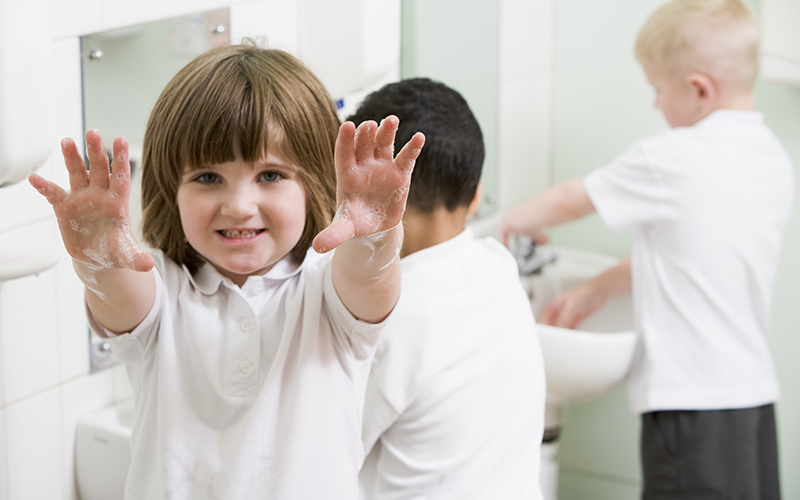
As Australia battles with COVID-19 outbreaks across all mainland states, there is a sense of familiar dread as major cities plunge into lockdown.
But this lockdown is different: It’s the first time state governments haven’t automatically closed schools.
Parents are naturally concerned and some have chosen to keep their children home. The reality faced by many parents is that they need their kids in school so they can keep working, not to mention the strong academic and social drivers for keeping your child in a steady school routine. Parents are also aware of the advice from educators that every school day matters, and that the cumulative impact of missed school days over a child’s life are important .
Program Head of Vaccines and Infectious Diseases at The Kids Research Institute Australia, Associate Professor Asha Bowen, explains why schools are safe for children during lockdown.
Kids get infected at much lower rates than adults and do not get as sick
We learnt very early in the pandemic that children and adolescents are less likely to become unwell with COVID-19 than adults. This has continued to remain true even with the new variants that are around in 2021. Kids also don’t transmit the virus as effectively, especially young children. Whilst young children are known to spread flu and other respiratory viruses to each other and adults every winter, COVID-19 behaves differently. Kids are not as effective at spreading COVID-19, but we still don’t know why. Our researchers at The Kids Research Institute Australia are continuing to work on this question.
Although school-aged children can become infected with SARS-CoV-2, they usually have mild or no symptoms and few need hospital-level care. Children rarely get severely ill from COVID-19.
In Australia, fewer than 1700 children under 10 years old have been infected since the pandemic began in early 2020.
And in schools in Australia where children have attended while infected, there has been only limited evidence that they’ve spread it to their classmates or staff. Most school clusters have been very small where these have occurred in NSW and Victoria.
What about the Delta variant?
SARS-CoV-2 is an mRNA virus which means it can change quickly, known as mutation of the virus. The Delta strain, an emerging mutant strain responsible for most of the current Australian outbreaks, does appear to be more transmissible than the earlier variants of the virus, with sometimes only fleeting contact. But thankfully it does not appear to be making people sicker.
This applies to children – more children have been diagnosed with the Delta strain globally but they are not getting any sicker than they have from previous strains.
Teachers should be protected
While the risk to children seems to be relatively low, it is important to remember that teachers and school staff are frontline, essential workers during this pandemic. Many experts agree they should be prioritised for vaccination – not because they are likely to catch the virus from kids, but because of the risk they could catch it from each other, and it is important to keep schools open.
We’re getting better at this
We’ve been living with COVID-19 for 18 months now and until a significant portion of the population is vaccinated, we will have to keep living with it. Schools are well prepared. Cleaning regimes have intensified, teachers are wearing masks around other adults when they’re not teaching and parents are being discouraged from entering school grounds. Students are also really good at hand hygiene, and high schoolers at wearing masks when needed.
Things can change quickly and there is still so much we do not know about COVID-19. But at this stage, the health advice is really clear: It is safe to send your children to school during lockdown.
